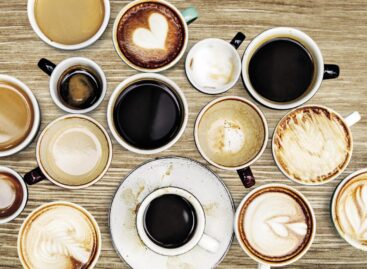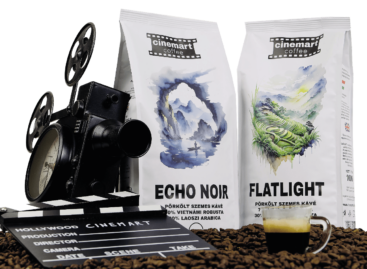A cup of coffee for a long, healthy life? 30 years of research has provided the answer
Coffee in the morning is not only a wake-up call – according to the latest research, it may also be one of the keys to healthy aging, at least for women. According to the results of a thirty-year study, women who regularly drink caffeinated coffee are much more likely to have good physical and mental health in old age.
 More than 47,000 women, three decades, a lot of data – this is how the large-scale American study that examined the relationship between coffee consumption and healthy aging can be summarized. The results were presented at the end of May at the Nutrition 2025 conference of the American Society for Nutrition.
More than 47,000 women, three decades, a lot of data – this is how the large-scale American study that examined the relationship between coffee consumption and healthy aging can be summarized. The results were presented at the end of May at the Nutrition 2025 conference of the American Society for Nutrition.
The central finding of the study: in middle-aged women, regular consumption of caffeinated coffee can significantly increase the chances of remaining physically active, mentally fresh and free from chronic diseases even after the age of 70.
Not all caffeine is the same
The researchers specifically distinguished between different sources of caffeine: the beneficial effect is clearly linked to caffeinated coffee. Tea or decaffeinated coffee showed no similar association, while cola consumption negatively affected the chances of healthy aging.
According to Dr. Sara Mahdavi, the leader of the study, coffee contains not only caffeine, but also a number of other health-protective compounds: “The antioxidants, collagen acids and anti-inflammatory substances found in coffee may reduce the risk of high blood pressure, heart disease, and even Alzheimer’s and Parkinson’s disease,” said the assistant professor at the University of Toronto.
What does healthy aging mean?
In the study, “healthy aging” was considered to be when someone:
- lives to at least 70 years of age,
- is free from 11 major chronic diseases (e.g. heart disease, cancer, diabetes),
- maintains physical activity and independence,
- enjoys good mental health, and
- does not suffer from memory problems or cognitive decline.
By the end of the study, which lasted from 1984 to 2016, 3,706 women met these criteria – and among them, the proportion of those who consumed caffeinated coffee was significantly higher.
Related news
Experience instead of routine
🎧 Hallgasd a cikket: Lejátszás Szünet Folytatás Leállítás Nyelv: Auto…
Read more >Related news
The impact of the forint exchange rate on GDP growth
🎧 Hallgasd a cikket: Lejátszás Szünet Folytatás Leállítás Nyelv: Auto…
Read more >Cheese-cocoa-peach jam: these are the most popular cookie flavors
🎧 Hallgasd a cikket: Lejátszás Szünet Folytatás Leállítás Nyelv: Auto…
Read more >








